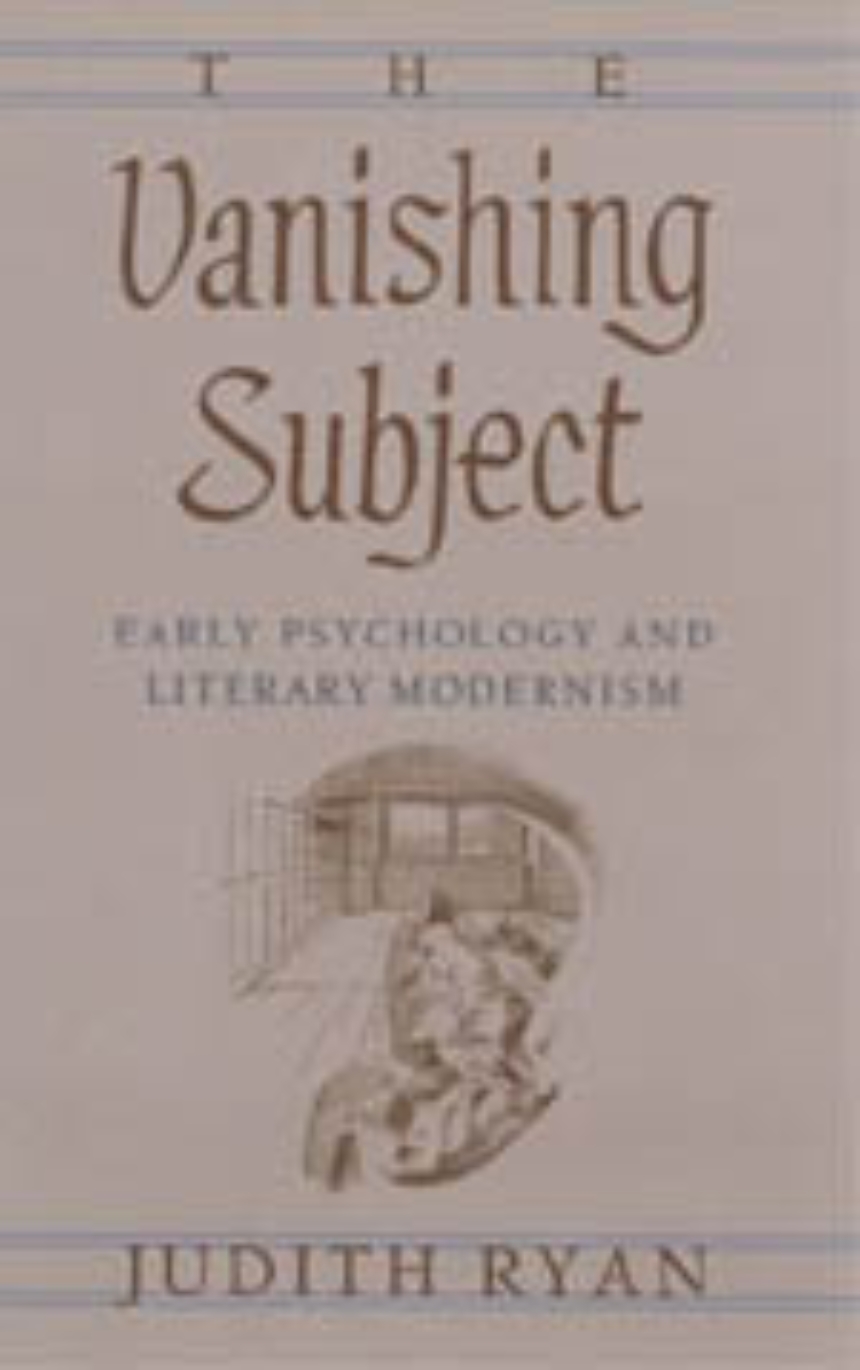The Vanishing Subject
Early Psychology and Literary Modernism
Is thinking personal? Or should we not rather say, "it thinks," just as we say, "it rains"? In the late nineteenth century a number of psychologies emerged that began to divorce consciousness from the notion of a personal self. They asked whether subject and object are truly distinct, whether consciousness is unified or composed of disparate elements, what grounds exist for regarding today’s "self" as continuous with yesterday’s. If the American pragmatist William James declared himself, on balance, in favor of a "real and verifiable personal identity which we feel," his Austrian counterpart, the empiricist Ernst Mach, propounded the view that "the self is unsalvageable."
The Vanishing Subject is the first comprehensive study of the impact of these pre-Freudian debates on modernist literature. In lucid and engaging prose, Ryan traces a complex set of filiations between writers and thinkers over a sixty-year period and restores a lost element in the genesis and development of modernism. From writers who see the "self" as nothing more or less than a bundle of sensory impressions, Ryan moves to others who hesitate between empiricist and Freudian views of subjectivity and consciousness, and to those who wish to salvage the self from its apparent disintegration. Finally, she looks at a group of writers who abandon not only the dualisms of subject and object, but dualistic thinking altogether.
Literary impressionism, stream-of-consciousness and point-of-view narration, and the question of epiphany in literature acquire a new aspect when seen in the context of the "psychologies without the self." Rilke’s development of a position akin to phenomenology, Henry and Alice James’s relation to their psychologist brother, Kafka’s place in the modernist movements, Joyce’s rewriting of Pater, Proust’s engagement with contemporary thought, Woolf’s presentation of consciousness, and Musil’s projection of a utopian counter-reality are problems familiar to readers and critics: The Vanishing Subject radically revises the way we see them.
The Vanishing Subject is the first comprehensive study of the impact of these pre-Freudian debates on modernist literature. In lucid and engaging prose, Ryan traces a complex set of filiations between writers and thinkers over a sixty-year period and restores a lost element in the genesis and development of modernism. From writers who see the "self" as nothing more or less than a bundle of sensory impressions, Ryan moves to others who hesitate between empiricist and Freudian views of subjectivity and consciousness, and to those who wish to salvage the self from its apparent disintegration. Finally, she looks at a group of writers who abandon not only the dualisms of subject and object, but dualistic thinking altogether.
Literary impressionism, stream-of-consciousness and point-of-view narration, and the question of epiphany in literature acquire a new aspect when seen in the context of the "psychologies without the self." Rilke’s development of a position akin to phenomenology, Henry and Alice James’s relation to their psychologist brother, Kafka’s place in the modernist movements, Joyce’s rewriting of Pater, Proust’s engagement with contemporary thought, Woolf’s presentation of consciousness, and Musil’s projection of a utopian counter-reality are problems familiar to readers and critics: The Vanishing Subject radically revises the way we see them.
278 pages | 6 x 9 | © 1991
Literature and Literary Criticism: Germanic Languages
Psychology: General Psychology
Table of Contents
Acknowledgments
Introduction
1. The New Psychologies
I. A Mass of Sensations
2. Walter Pater
3. Joris-Karl Huysmans
4. Rainer Maria Rilke
5. Alice James
II. The Perceptual Field
6. Henry James
7. Gertrude Stein
8. Franz Kafka
III. Salvaging the Self
9. Hugo von Hofmannsthal
10. Arthur Schnitzler
11. James Joyce
12. Alfred Döblin
13. Hermann Broch
IV. Daylight Mysticism
14. Marcel Proust
15. Virginia Woolf
16. Robert Musil
Conclusion
Notes
Index
Introduction
1. The New Psychologies
I. A Mass of Sensations
2. Walter Pater
3. Joris-Karl Huysmans
4. Rainer Maria Rilke
5. Alice James
II. The Perceptual Field
6. Henry James
7. Gertrude Stein
8. Franz Kafka
III. Salvaging the Self
9. Hugo von Hofmannsthal
10. Arthur Schnitzler
11. James Joyce
12. Alfred Döblin
13. Hermann Broch
IV. Daylight Mysticism
14. Marcel Proust
15. Virginia Woolf
16. Robert Musil
Conclusion
Notes
Index
